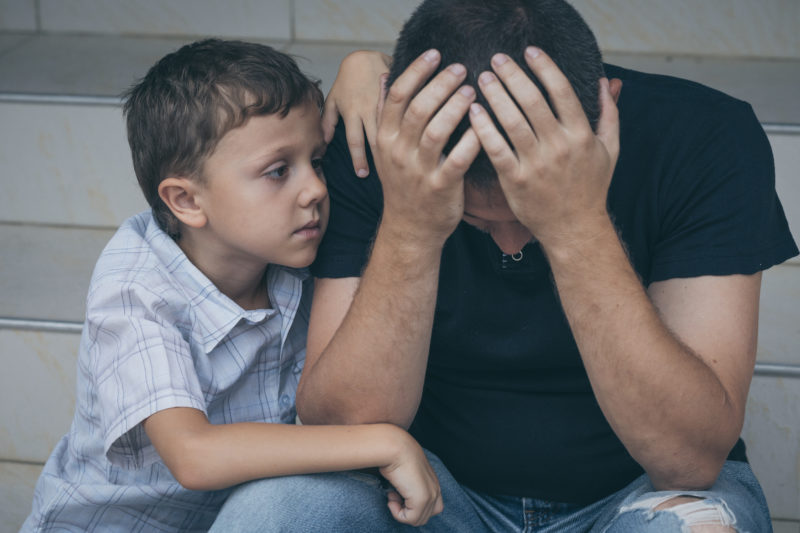
The Struggles of a Father
Fathers are often given the short end of the stick. Whether it is the assumption that they were the breadwinner in the marital household and should be responsible for paying alimony and child support or that they are not equally as capable of providing a loving, nurturing, and stable environment for a child to live and grow in, it can be a challenge to cope with.
This can lead to all sorts of physical and mental symptoms, resulting from the experience. It can weigh on a father, unable to spend the time that they want with their children, but asked to finance the life that their ex-spouse no longer wants them a part of.
This can lead many fathers into a state of depression that can be passed down to their children, according to recent studies.
The study
Researchers in the United Kingdom and Ireland have begun looking into the connection between a father’s depressive symptoms and the depressive symptoms of their adolescent children. Previous studies have looked into mothers, but because of the notion that men do not seek out the mental health care services that they need, due to the gendering of help-seeking, research has begun exploring from the father’s perspective.
The subjects of the study, which included more than 6,000 Irish two-parent families and almost 8,000 United Kingdom two-parent families, were measured during two separate age ranges: when children were ages 7 to 9 and again at ages 13 to 14.
The results found that for every 3-point increase in paternal depressive symptoms, there was an increase of about a third of a point in adolescent depressive symptoms. Furthermore, the influence was stronger for daughters than sons in the country of Ireland. However, in both countries, it did not matter whether the father was biologically related to the child.
Father-child bond
The notion that the bond between a mother and child could nurture a home environment, due to how in sync they are is challenged by the results of this study. The results found that the association of a father’s depressive symptoms and a child’s depressive symptoms are of the same strength as a mother’s depressive symptoms and a child’s depressive symptoms.
This is because a father’s relationship with their child has the ability to be just as strong as a mother’s relationship with their child. Gender does not influence one’s ability to love their children, and many courts do not always see that, forcing fathers to play a game where the deck is stacked against them.
Later struggles
When the decree is finalized and years go by, they can find themselves facing further struggles. Without the representation of legal counsel, they may face the prospect of their child support and alimony going up, without additional visitation time being awarded.
They may have the opportunity to modify their alimony and child support as the years go by. The amount and duration can often be reassessed. Time can often act as a way of healing some of hard feelings that exist during the end of a marriage and a subsequent custody battle.
However, that also requires a sense of willingness to negotiate from the opposing party. It can be difficult for anyone, let alone an ex-spouse, to accept less money than originally promised, which is why many fight the idea of modification.
This is not even including the difficulties that many men run into with their children. Their relationship with their children can often deteriorate, due to parental alienation. Whether it is a custodial mother speaking negatively about their father or other authoritative adults in a child’s life talking negatively about a father, it can wreak havoc in the parent-child relationship, causing many children to refuse the court-ordered visitation: a request that many mothers happily oblige.
It is important for both parents to understand and respect the place they have in the lives of their shared children. When one parent refuses to acknowledge that, the lives of the children are worse off for it, and for many fathers, that is the unfortunate reality that they have to fight to fix.
